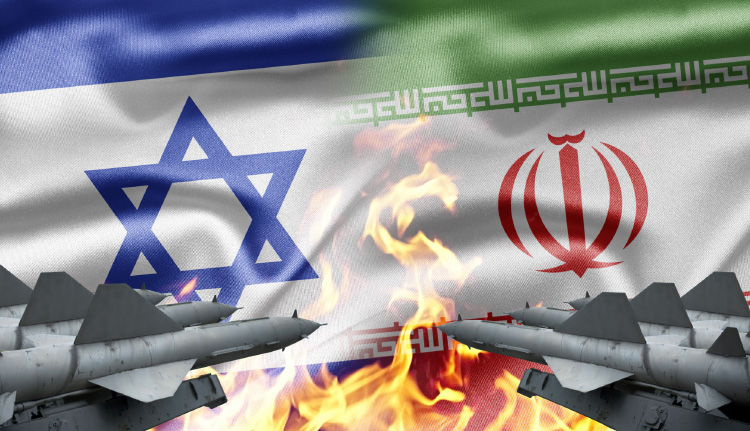In the most recent escalation between Israel and Iran, the two sides have, for the first time, directly confronted each other, abandoning the use of proxies in Lebanon, Yemen, Syria and Iraq. Although the escalation did not result in substantial damage, it has drawn attention to the potential threat of a real escalation between Iran and Israel. The implications extend to both regional security and the stability of the energy market.
Iran’s unprecedented launch of over 300 drones and missiles towards Israel signifies a significant shift in its approach, as it previously relied on attacks by proxies. Despite the scale of the attack, its impact on the global markets has been relatively muted. Nevertheless, the risks to fuel prices and global energy security have increased significantly.
The Paris-based International Energy Agency highlighted the threat posed by Iran’s attack on Israel, emphasizing the potential for increased volatility in oil markets and the importance of oil security. The longstanding tensions between Iran and Israel have escalated with this direct attack, significantly increasing the likelihood of a regional, if not wider, war. The possibility of Israel’s response leading to further escalation, posing risks of miscalculation and disproportionate responses from both sides, added to the complexity of the situation.
This direct confrontation between Iran and Israel could alter the dynamics of their relationship and raises the prospect of a multi-front conflict. The potential scenarios include Israel diverting its focus from the conflict in Gaza to engage more directly with Hezbollah in southern Lebanon, or the possibility of Iran’s proxies putting more pressure on Gulf States.
Since October, Houthi militias in Yemen, which is one of Iran proxies also, have launched over 100 attacks targeting vessels, according to a statement last month from the Pentagon.
These attacks have notably targeted commercial ships traversing the Red Sea as they near the Suez Canal, a vital artery facilitating approximately 12% of global shipping traffic, as reported by the U.S. Naval Institute.
In response to these threats, major shipping companies such as MSC, Maersk, and Hapag-Lloyd, alongside British oil giant BP, have taken proactive measures by rerouting their ships to take alternative routes, mitigating potential disruptions to global trade and safeguarding their assets from further attacks.
The increased travel time has strained the supply of ships, since longer routes mean fewer ships are available to carry goods at any given time.
An escalation of the Middle East conflict, however, would significantly magnify the impact on oil prices and inflation, analysts have warned.
“That scenario would be chaotic,” remarked Rob Handfield, a professor of operations and supply chain management at North Carolina State University, in a conversation with ABC News.
In the event of a potential scenario where Israel engages in direct conflict with Iran, a major oil producer, the resultant price shock would lead to increased costs in operating factories and transporting goods. Consequently, a broad spectrum of consumer prices would experience a notable surge.
The current geopolitical landscape also factors in Iran’s oil production and exports. While Iran has significantly benefited from increased oil revenue, the potential enforcement of sanctions could impact both Iran and global oil markets. However, the Biden administration has shown little interest in imposing oil sanctions on Iran at present.
The ongoing situation between Iran and Israel and its impact on global oil markets underscore the need to closely monitor the potential disruptions to oil supplies, particularly from Iran. The risk of blockage in the Strait of Hormuz, through which a significant portion of global oil supplies flow, poses additional concerns.
Looking ahead, various factors, including seasonal demand, OPEC-plus supply cuts, and geopolitical risks, will continue to influence oil prices. The potential disruptions in the supply chain and the impact on global oil prices call for vigilance in assessing and managing supply risks.
It is crucial to acknowledge that the Iran-Israel confrontation is ongoing, and its impact on the global oil market should be evaluated over a prolonged period. The timing and nature of Israel’s response to Iran’s attack, as well as the broader international dynamics, are key components in assessing the long-term implications of this escalating conflict.
The recent events involving Iran and Israel have heightened concerns about a wider conflict in the Middle East and its potential impact on global oil prices. The intricacies of the situation, including geopolitical tensions and regional dynamics, necessitate a comprehensive understanding of supply risks and proactive measures to manage potential disruptions in the oil market.







